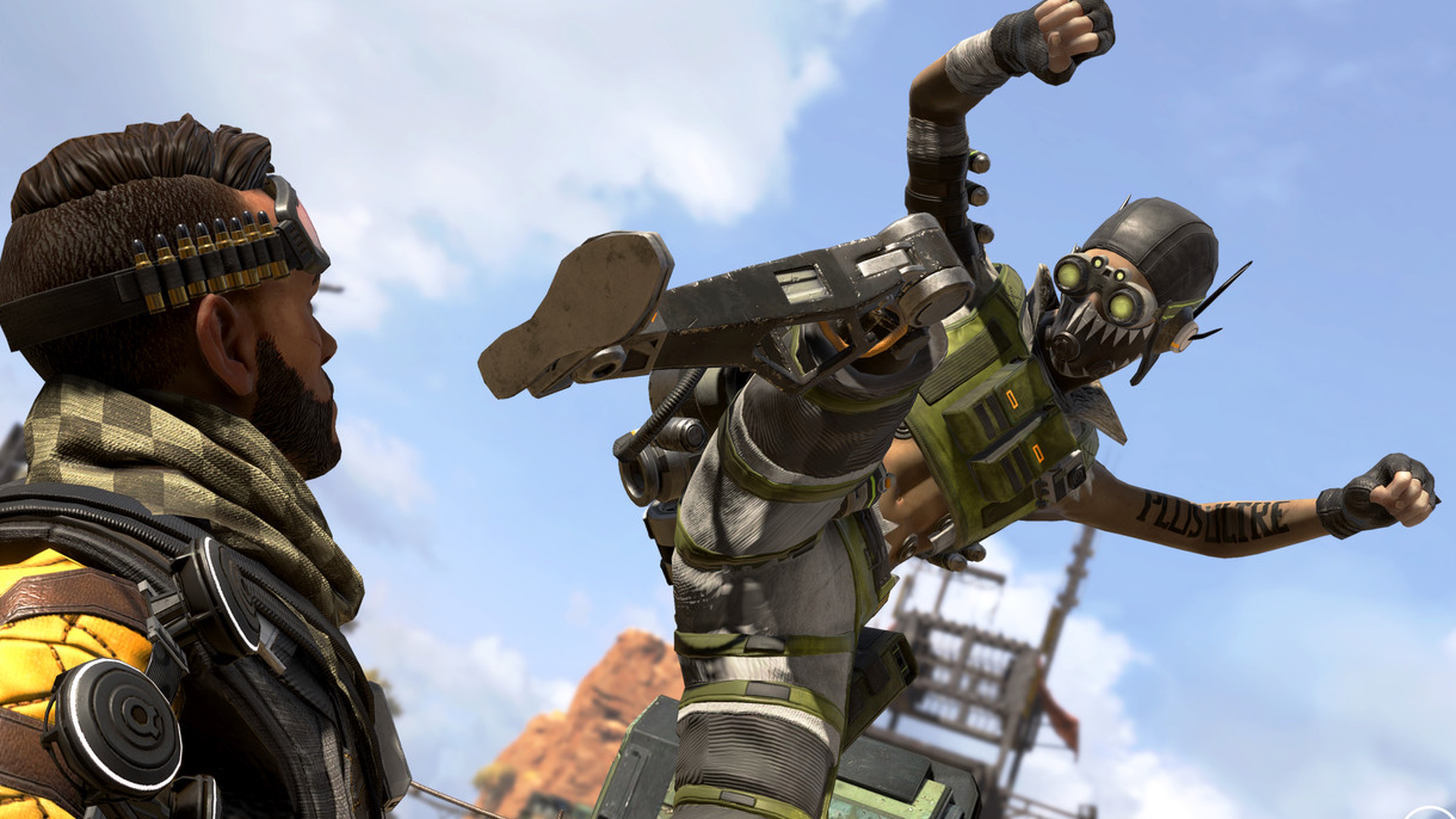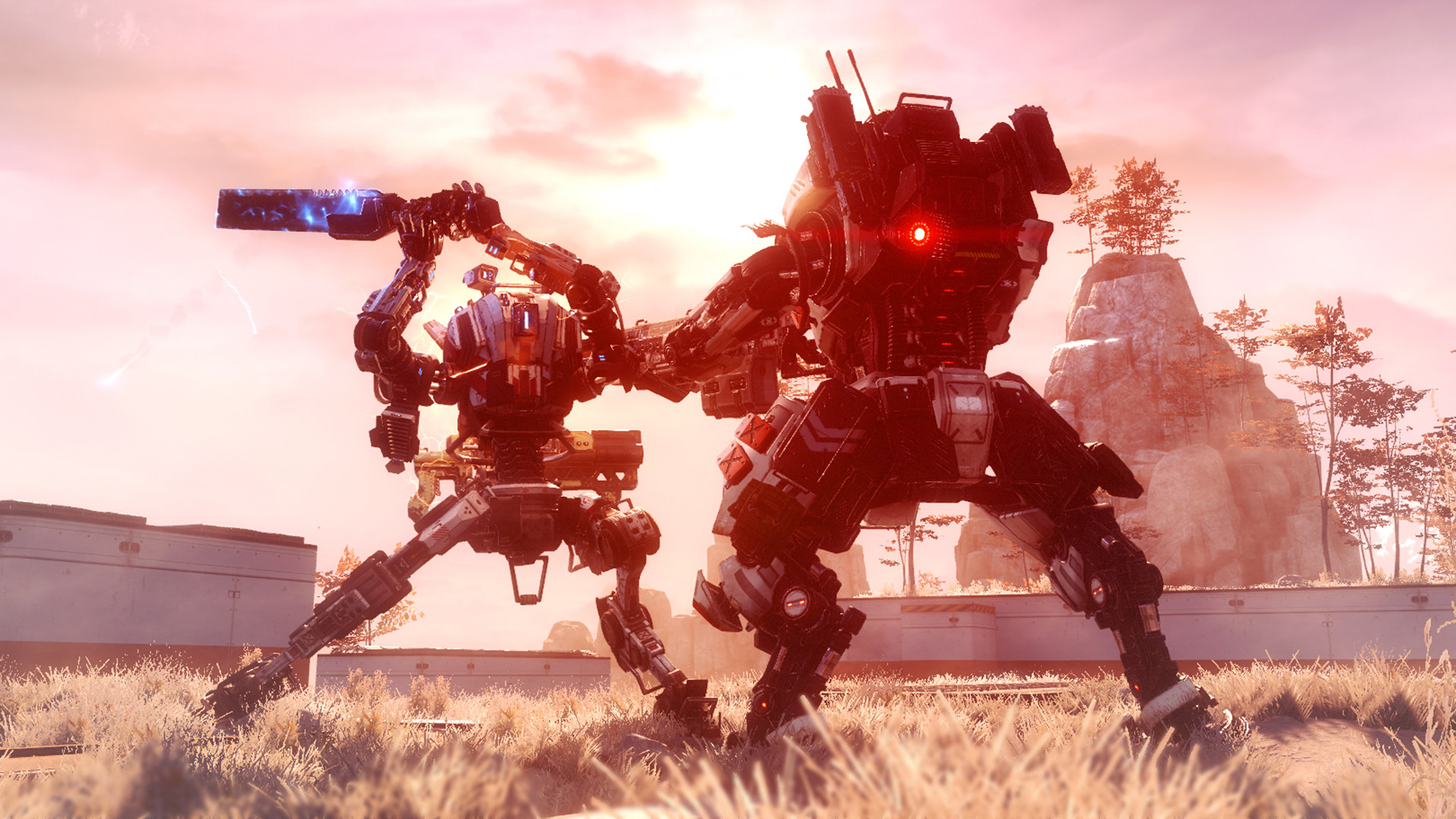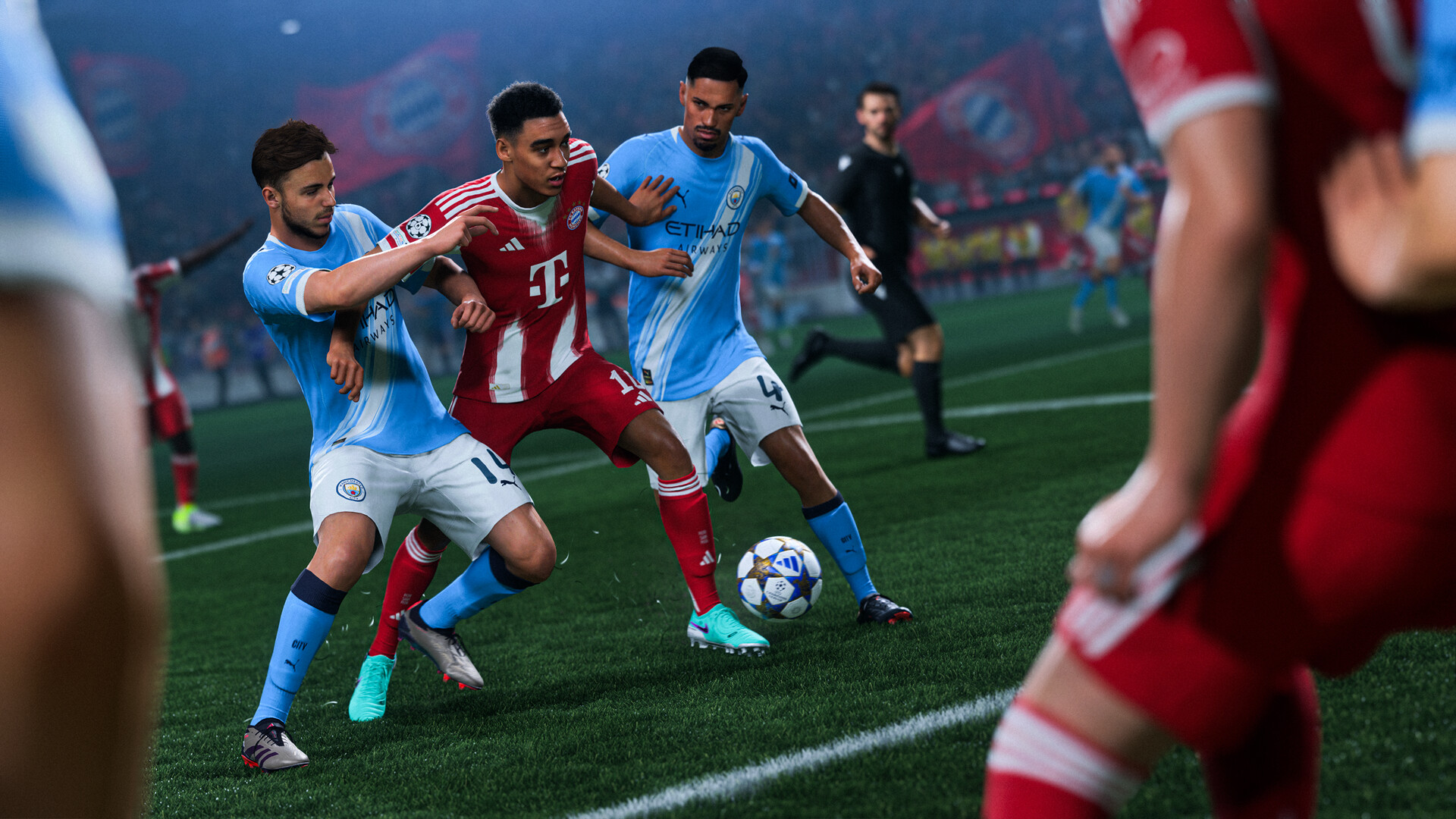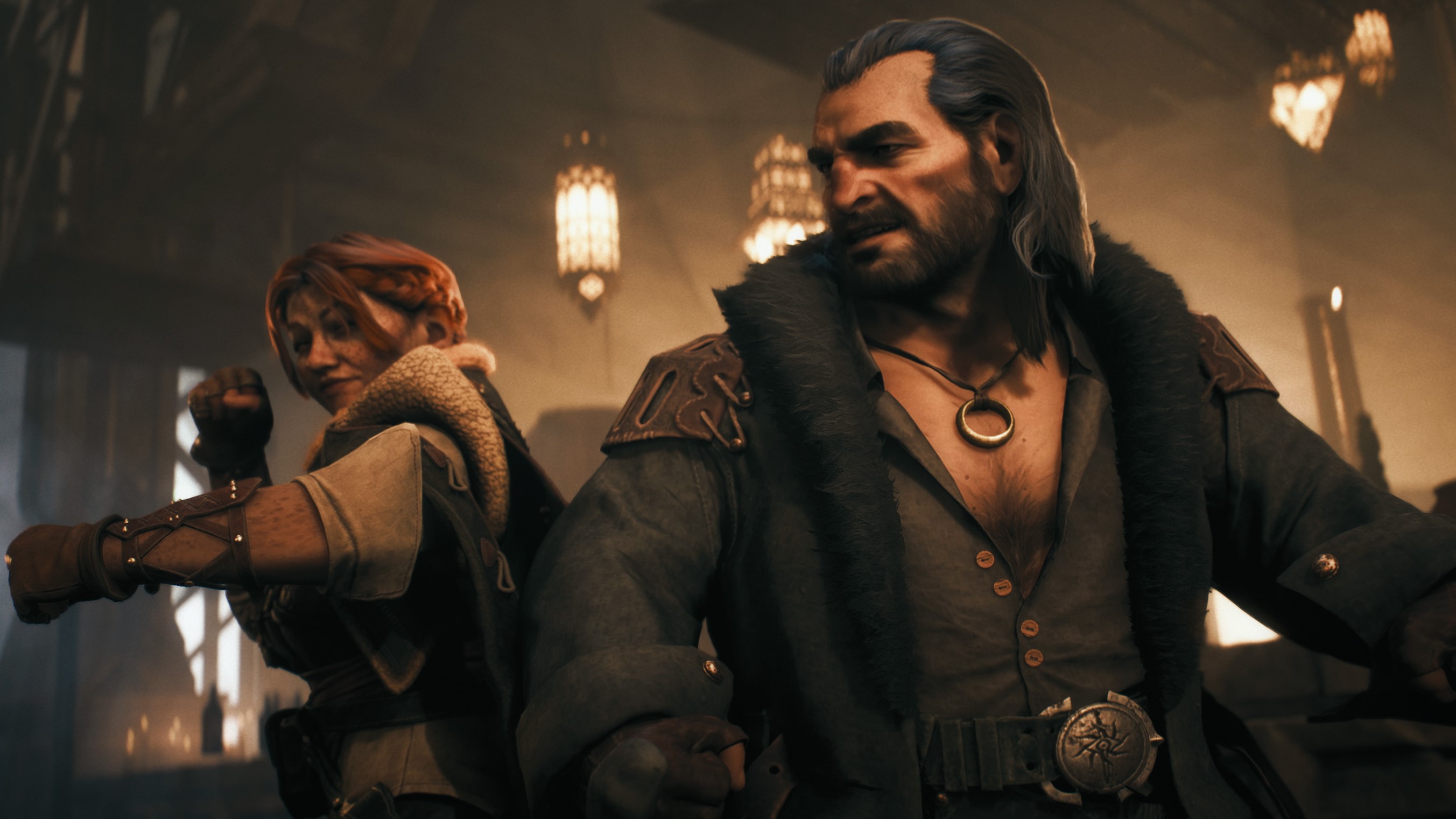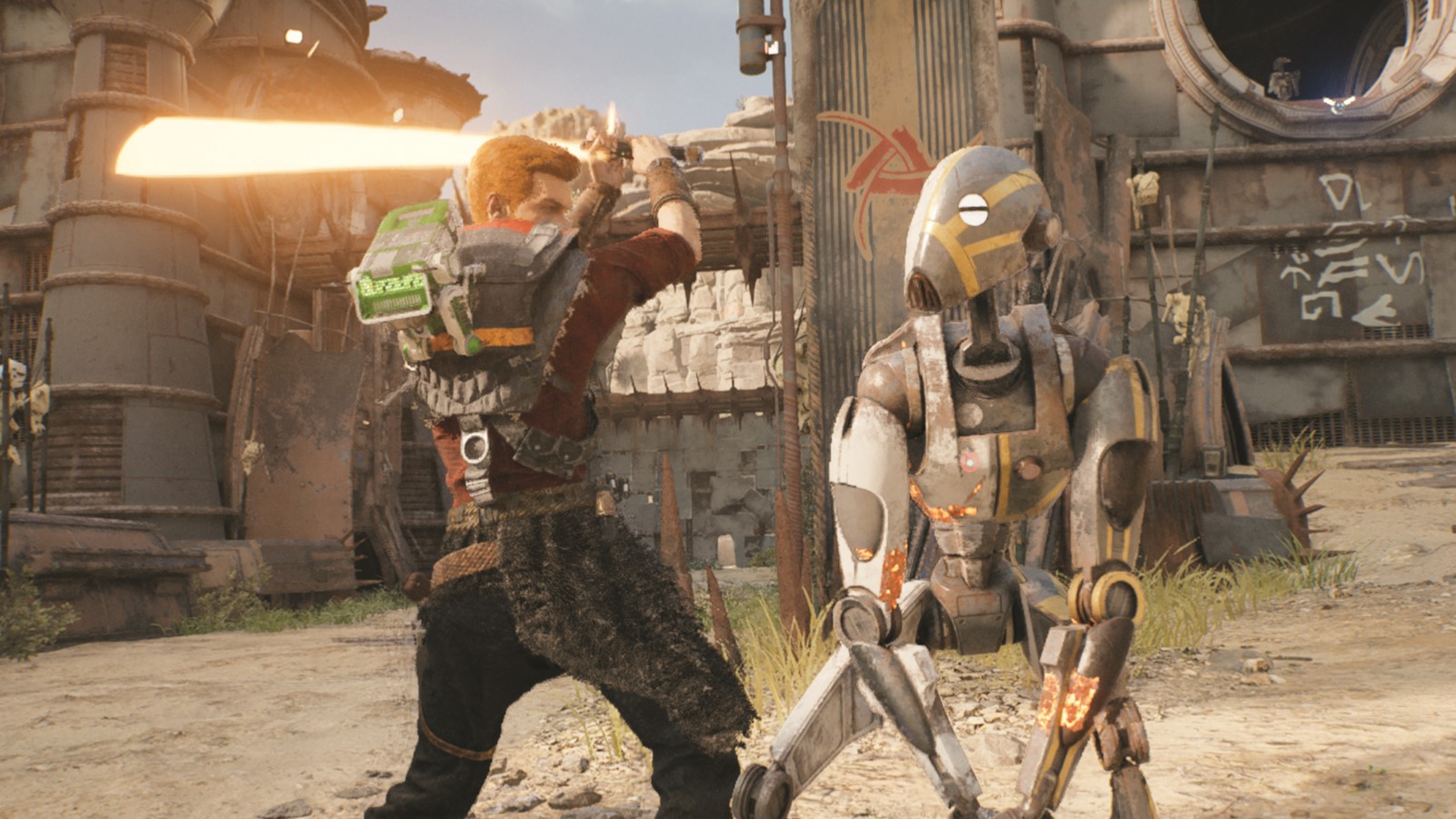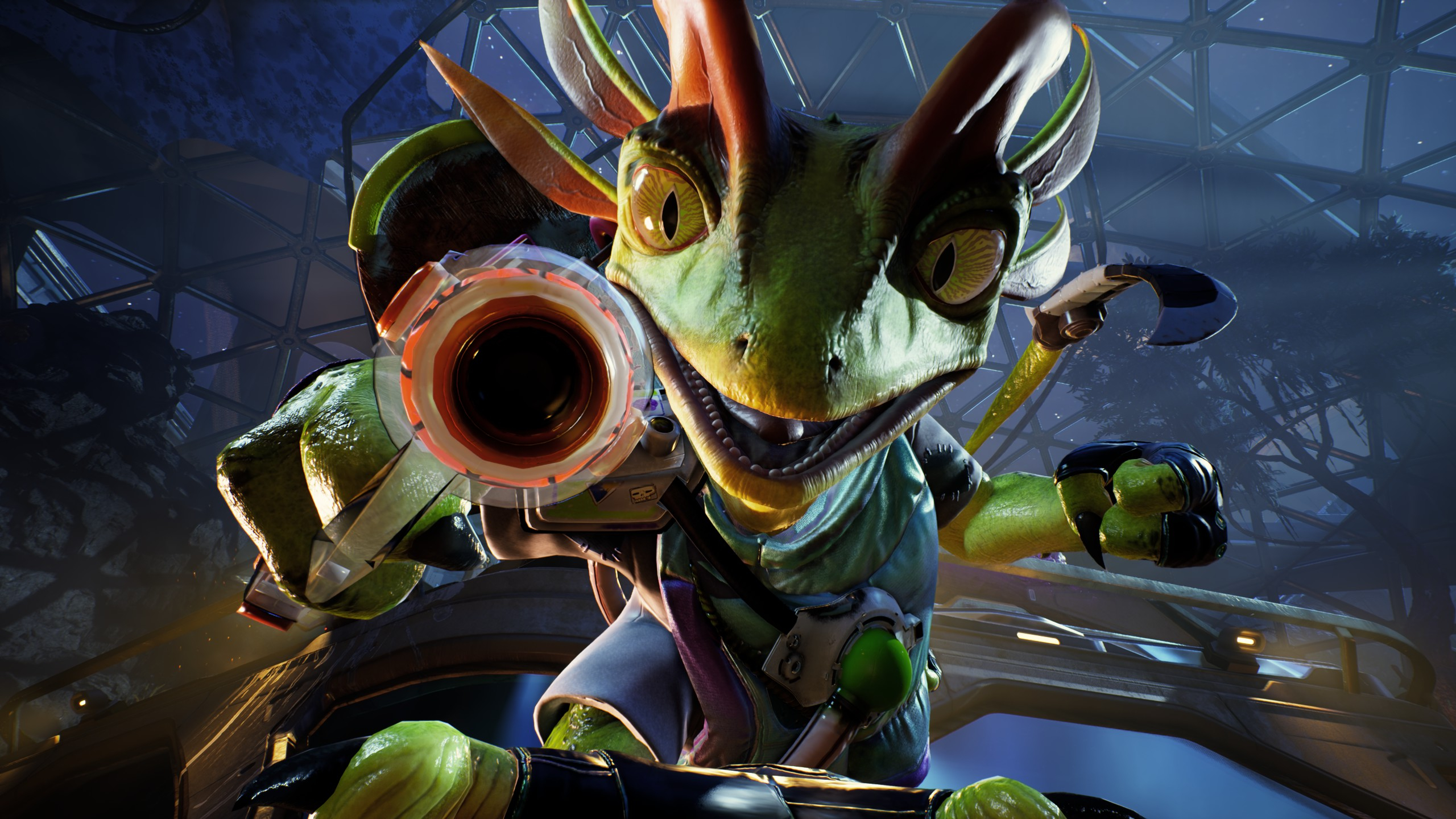EA's $55 billion acquisition is the biggest leveraged buyout in private equity history. Here's why it has everyone terrified
Private equity and PIF investment aren't a reassuring pair.
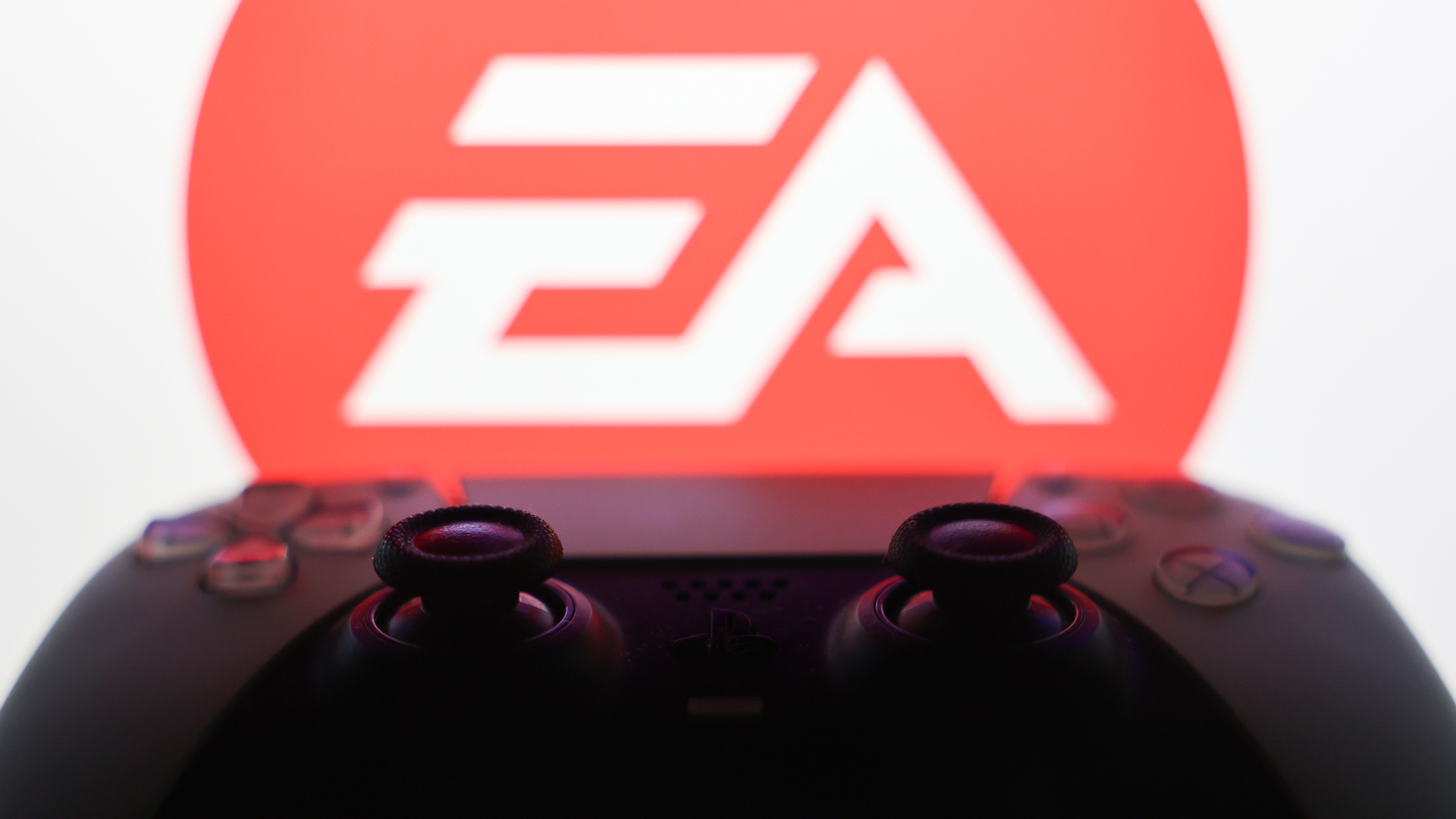
Keep up to date with the most important stories and the best deals, as picked by the PC Gamer team.
You are now subscribed
Your newsletter sign-up was successful
Want to add more newsletters?

Every Friday
GamesRadar+
Your weekly update on everything you could ever want to know about the games you already love, games we know you're going to love in the near future, and tales from the communities that surround them.

Every Thursday
GTA 6 O'clock
Our special GTA 6 newsletter, with breaking news, insider info, and rumor analysis from the award-winning GTA 6 O'clock experts.

Every Friday
Knowledge
From the creators of Edge: A weekly videogame industry newsletter with analysis from expert writers, guidance from professionals, and insight into what's on the horizon.

Every Thursday
The Setup
Hardware nerds unite, sign up to our free tech newsletter for a weekly digest of the hottest new tech, the latest gadgets on the test bench, and much more.

Every Wednesday
Switch 2 Spotlight
Sign up to our new Switch 2 newsletter, where we bring you the latest talking points on Nintendo's new console each week, bring you up to date on the news, and recommend what games to play.

Every Saturday
The Watchlist
Subscribe for a weekly digest of the movie and TV news that matters, direct to your inbox. From first-look trailers, interviews, reviews and explainers, we've got you covered.

Once a month
SFX
Get sneak previews, exclusive competitions and details of special events each month!
On Monday, news broke that EA, one of the world's largest publicly-traded game publishers, is being taken private in a $55 billion leveraged buyout funded by a group of investors including Jared Kushner's Affinity Partners private equity firm and Saudi Arabia's Public Investment Fund.
If the deal earns shareholder and regulator approval, it'll be the largest leveraged buyout in history—and it's already inspiring dread in fans and EA developers alike.
To understand why the buyout news seems dire to so many, we first need to understand private equity and what exactly a leveraged buyout entails. The PIF, meanwhile, is its own troubling wildcard.
Since 1990, EA has been a public company: Like other publicly traded businesses, its ownership—or equity—has been determined by the distribution of shares of capital stock that are bought and sold through stock exchanges. Being a publicly traded company offers advantages, the most obvious being the ability to raise funds by selling shares of stock.
But public companies have their disadvantages, too—particularly for consumers in creative and entertainment industries. Shareholder primacy, the theory that delivering value to shareholders should be the singular principle guiding corporate strategy, is the era's prevailing economic philosophy.
That relentless pursuit of profit maximization, however, often prioritizes short-term returns over quality, creative output, and worker security, manifesting in videogames as risk-averse release strategy, predatory monetization schemes, and storms of layoffs and studio closures—all of which have marked EA's controversial history.
While EA won't be subject to the whims of the stock market, private equity ownership presents its own pitfalls.
It's understandable how the news that EA will be transitioning to private ownership could have an appeal. But while EA won't be subject to the whims of the stock market, private equity ownership presents its own pitfalls.
Keep up to date with the most important stories and the best deals, as picked by the PC Gamer team.
"At the most basic level, a private equity firm is an investment management firm that raises money from different sources and uses the combined capital to buy companies," Kiplinger senior investing editor Karee Venema told PC Gamer. "Most of the time, they buy privately held companies. But sometimes, as is the case with Electronic Arts, they purchase public companies and take them private."
Typically, Venema said, private equity firms buy or take a stake in "established" companies with "strong long-term growth potential, but have areas that can be improved to create value for the investors." In EA's case, she said "some Wall Street analysts identify mobile revenue as an area where the company has room to grow."
Applying leverage
Ostensibly, the goal of a private equity acquisition is to optimize the bought-out company's performance for long-term returns, tapping underutilized potential—like EA's mobile business—to increase profits. But private equity firms have gained a sinister reputation thanks to a counter-intuitive strategy in which firms can cannibalize their own acquisitions, extracting profits at the expense of the company and its workforce.
That grisly process begins with the leveraged buyout, the most common form of private equity acquisition.
"A leveraged buyout just means the company is bought using a combination of borrowed money, or debt, and private equity," Venema said. "The purchased company's balance sheet is used as collateral against the loans taken out to purchase it."
In other words, the "leverage" in the leveraged buyout is debt—and crucially, the collateral for that debt is the assets of the acquired company, not of the private equity firm itself. The investors are able to limit how much capital they have to supply for the buyout, while limiting their financial risk if the loan—in EA's case, a $20 billion loan from JP Morgan—proves insurmountable.
Reading that might produce a faint, dissonant tingle in the back of your mind. You might be wondering, "If private equity firms can take out loans that only their companies are responsible for, could they bleed more money out of a valuable company than they paid and avoid any consequences when that company goes bankrupt?"
And you'd be right to wonder, because that's exactly what some private equity firms do.
If you're not terribly concerned about a company's long-term survival, there are myriad ways to drain it of as much value as possible. As the Guardian wrote last year, private equity firms have hollowed out company workforces and raised prices to pull in unsustainable profits, aiming to cut loose before declining product quality tanks sales. Others have liquidated company assets, enriching investors with the sale of real estate, subsidiaries, and intellectual property.
If you're not terribly concerned about a company's long-term survival, there are myriad ways to drain it of as much value as possible.
Sometimes, those sold assets will end up driving the company further into debt through "sale-leaseback agreements," where the firm will arrange for the company to sell its real estate properties, pocketing the profits while the company is forced to pay rent for the use of its own business space. Meanwhile, the firm is likely extracting additional "management fees": standard 2-and-20 terms see firms taking an annual 2% of a managed company's assets and 20% carried interest on all profits above a certain margin, while the company might face additional monitoring fees, transaction fees, and more.
Private equity has maimed retail franchises like Party City. It has brutalized digital media outlets like the Gizmodo Media Group and demolished local news across the US. It's left hospitals full of bats and increased mortality in retirement homes. A report using S&P data found that in 2024, private equity-backed companies accounted for more than 10% of all corporate bankruptcies and over 50% of bankruptcies with over $500 million in liabilities—but "despite their role in precipitating bankruptcies, private equity firms often emerge financially unscathed."
"There have certainly been instances of this—the 2017 bankruptcy of Toys 'R' Us is top of mind for me," Venema said. "But there have been successful private equity buyouts, too."
Hilton, for example, was arguably better off in 2018 when Blackstone sold its remaining stake from its 2007 LBO—sometimes called "the best LBO ever" in financial circles. And Dell, Venema said, went from a $25 billion buyout in 2013 to being valued today at nearly $100 billion after going public again in 2018.
The PIF problem
Investors and analysts, however, seem largely unconcerned about EA suffering the potential deathtouch of private equity, in part because of the investment from Saudi Arabia's Public Investment Fund, which won't necessarily be following the same playbook as the private equity firms joining it in the buyout.
"Wall Street seems generally upbeat about the EA buyout, expecting PIF to draw from its vast resources and drive meaningful value from the transaction," Venema said.
The PIF, which already held a 9.9% equity stake in EA, was formed in 1971 to diversify Saudi Arabia's economic interests through international investment. In recent years, PIF investments have flooded billions into sports team takeovers, esports tournaments, film partnerships, and sizable ownership stakes in videogame companies like Take-Two, Nexon, Capcom, Nintendo, and more—efforts that have been criticized as attempts to launder the country's infamous record of human rights violations as it seeks to lessen its reliance on oil.
Saudi Arabia's crown prince, prime minister, and de facto ruler Mohammed bin Salman, who the CIA concluded had ordered the assassination and dismemberment of Washington Post journalist Jamal Khashoggi, also serves as the PIF's chairman. In 2024, a US Department of State report found that, under bin Salman, there had been "no significant changes in the human rights situation in Saudi Arabia," characterized by credible reports of extrajudicial killings, arbitrary arrests, torture, press censorship, and restrictions on freedom of expression.
We've been given proof that Saudi money is conditional.
We've already seen Saudi videogame investment land the royal family's favorite soccer player in Fatal Fury and send Assassin's Creed on a PIF-funded DLC getaway. The news of the PIF's involvement in the EA buyout has sparked concern that Saudi ownership will leave EA games like The Sims, which fans have made a haven for representation and diversity, subject to a regime with a documented history of women's rights violations.
This month, we've been given proof that Saudi money is conditional. Prominent comedians like Dave Chappelle, Bill Burr, and Aziz Ansari have provoked a backlash from fans and peers by accepting outsized payments to attend a Saudi Arabian comedy festival in Riyadh. One comedian, Tim Dillon, was fired from the festival after rationalizing his decision to attend with a joke that acknowledged Saudi Arabia's estimated 750,000 individuals living in modern slavery.
In a 2023 interview with Fox News, bin Salman waved away the accusations of "sportswashing," saying "If sportswashing going to increase my GDP by way of one percent, then I will continue doing sportwashing. I don't care."
In an email to employees earlier this week, EA CEO Andrew Wilson said the company's "values and our commitment to players and fans around the world remain unchanged."

Lincoln has been writing about games for 12 years—unless you include the essays about procedural storytelling in Dwarf Fortress he convinced his college professors to accept. Leveraging the brainworms from a youth spent in World of Warcraft to write for sites like Waypoint, Polygon, and Fanbyte, Lincoln spent three years freelancing for PC Gamer before joining on as a full-time News Writer in 2024, bringing an expertise in Caves of Qud bird diplomacy, getting sons killed in Crusader Kings, and hitting dinosaurs with hammers in Monster Hunter.
